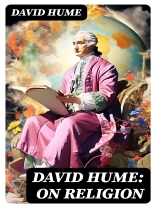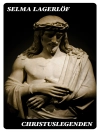In 'David Hume: On Religion, ’ Hume delves into the intricate interplay between human belief systems and the philosophical underpinnings of religion. This work combines Hume’s empiricist philosophy with a rigorous examination of religious phenomena, critically analyzing the nature of faith, superstition, and the arguments for the existence of God. Employing a clarity of prose that is characteristic of the Scottish Enlightenment, Hume invites readers to question established dogmas with a skeptical lens, thereby situating his discourse within the broader intellectual currents of rationalism and empiricism of the 18th century. David Hume, a pivotal figure in Western philosophy, profoundly influenced the realms of metaphysics, ethics, and epistemology, paving the way for modern philosophical inquiry. His own experiences, shaped by the vibrant philosophical debates of his time and his skepticism towards organized religion, fueled his exploration of the rational foundations—or lack thereof—of faith. Hume’s reflections were transformative, challenging prevailing religious convictions and advancing the discourse on human understanding of the divine. 'David Hume: On Religion’ stands as an essential read for anyone seeking to grasp the foundations of modern secular thought. Hume’s analytical approach not only fascinates scholars of philosophy and theology but also provokes thoughtful reflection for general readers questioning the complexities of belief and reason in today’s world.
O autorze
David Hume (1711–1776) was a Scottish Enlightenment philosopher, historian, economist, and essayist, known especially for his philosophical empiricism and skepticism. He is regarded as one of the most important figures in the history of Western philosophy and the Scottish Enlightenment. Hume’s 'A Treatise of Human Nature’ (1739–40), an attempt to introduce the experimental method of reasoning into moral subjects, is considered his seminal work, laying the foundation for the bulk of his later writings, including the 'Essays, Moral and Political’ (1741–42), 'An Enquiry Concerning Human Understanding’ (1748), and 'An Enquiry Concerning the Principles of Morals’ (1751). In 'David Hume: On Religion’, Hume’s perspectives on religion are explored, showcasing his critical approach to religious thought and the argument against the rationalization of divine existence. Hume is often associated with his theory of knowledge which emphasizes the role of sentiment and experience. His writing style is characterized by lucidity, elegance, and an incisive approach to tackling complex subjects. His works have been and continue to be hugely influential, not just within philosophy, but also in the fields of theology, ethics, and economics, shaping modern thought and debate on these subjects.












